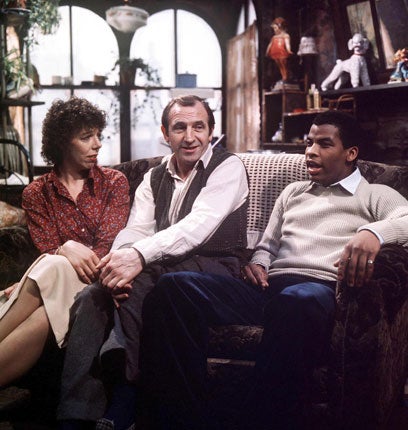Five ways to get the best out of your landlord
Simple, useful advice for students about to fly the halls of residence nest

Your support helps us to tell the story
From reproductive rights to climate change to Big Tech, The Independent is on the ground when the story is developing. Whether it's investigating the financials of Elon Musk's pro-Trump PAC or producing our latest documentary, 'The A Word', which shines a light on the American women fighting for reproductive rights, we know how important it is to parse out the facts from the messaging.
At such a critical moment in US history, we need reporters on the ground. Your donation allows us to keep sending journalists to speak to both sides of the story.
The Independent is trusted by Americans across the entire political spectrum. And unlike many other quality news outlets, we choose not to lock Americans out of our reporting and analysis with paywalls. We believe quality journalism should be available to everyone, paid for by those who can afford it.
Your support makes all the difference.Moving from halls to private housing is both exciting and stressful, with many things to consider. It is also a dangerous time for students. According to a recent survey by the boffins at StudentBeans, 68 per cent of students feel they have been taken advantage of by landlords. Here are some of the common pitfalls of life as a tenant, and ways to work around them.
Get off on the right foot
First impressions are very important, and it is essential to establish a friendly but professional relationship with your landlord from the very first contact you have with them. If you are viewing a property, show up on time. Ask relevant questions, and read any available information about the property before you go, so you’re not wasting their time.
Getting the initial paperwork and fees - holding fees, agency fees and deposits as well as tenancy and guarantor agreements - sorted quickly and efficiently will establish an immediate rapport with the landlord and set a good precedent for the rest of your dealings with them.
The inventory is important
The summer holidays are ending and you’re preparing to say goodbye once again to friends and family as you embark on the epic adventure of cheap alcohol, fried food and onesies that is Fresher’s week. It is common for students moving into independent accommodation for the first time to forget about the housing inventory amidst all the hassle, but it is one of the most important documents you will encounter as a tenant.
Remember the several hundred pounds you paid as a deposit? Come the end of the year, the inventory is your only way to receive it back in full. Take the time and care to read through it carefully, send it to your parents for a second opinion, query anything you don’t understand and above all make sure you are happy with the version you sign: this is the only way to ensure you avoid those '…b ut that mark has always been there!' moments.
Make do and mend
A phrase first coined during the Second World War, this philosophy can potentially save you a ton of money. During my second year of university, my housemates and I had one of the most traumatic experiences of our lives: the washing machine broke. We hurriedly got on the phone to our landlord, only to be told the parts plus the call-out fee was enormous.
Faced with a pile of dirty laundry and a flooded kitchen, the easiest solution would be to simply pay up and leave it at that. With a bit of research, we realised that if we ordered the parts online and repaired it ourselves, we would save over half of the money. The lesson here is to always check any quotes you receive from your landlord as there is the chance you can get it done more cheaply on your own.
No news is good news
Where possible, don’t cause your landlord any hassle. Respect your neighbours. No-one will mind you having the occasional party – in student areas they should be used to it – but landlords are often busy businessmen and women, and having pre-drinks elsewhere sometimes can save them having to deal with noise complaints.
Look after your belongings, lock your doors at night and sort out your own insurance where possible. Be punctual with your rent as much as you possibly can, and if you really cannot pay on time, send a polite email explaining why. Essentially, the less you dump on your landlord’s plate, the more willing they will be to deal with what you do need them for.
And finally… See it from their side
Remember that even after you’ve moved out and moved on to (presumably) greater things, your landlord still has to rent out the property. Try to work for mutual benefit; I know from experience that spats between landlord and tenant always end in tears. Maintain your house as well as you can; this helps you get your deposit back as well as smoothing over the transition between tenants.
When the groups of impressionable freshers inevitably start their awkward shamble around your temporary home, be welcoming. Answer their questions if you can; they’ll appreciate the honesty of another student more than the marketing jargon of the letting agent.
Jonathan is a creative writing student based in bath. Follow him on Twitter here
Join our commenting forum
Join thought-provoking conversations, follow other Independent readers and see their replies
Comments